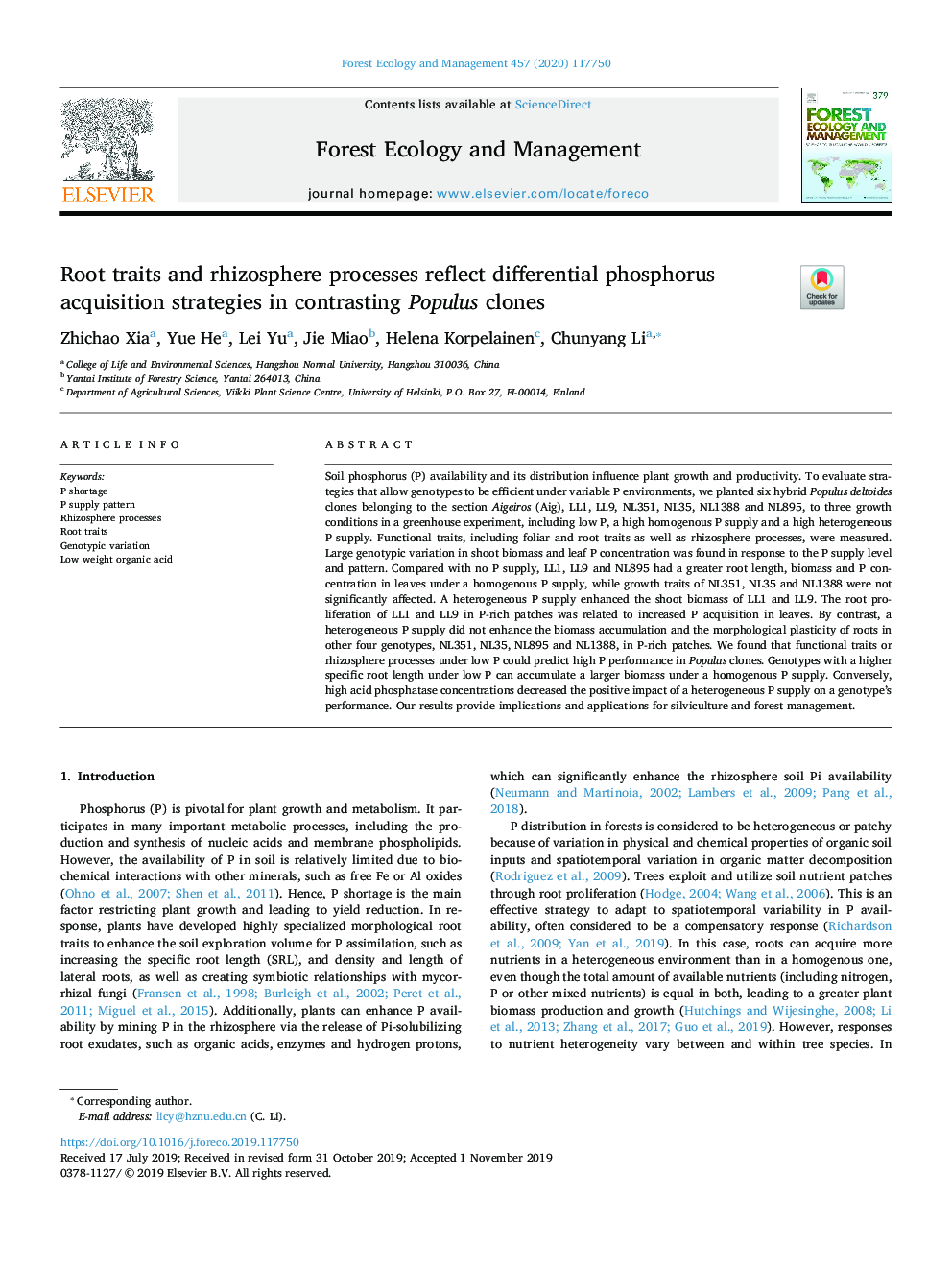| Article ID | Journal | Published Year | Pages | File Type |
|---|---|---|---|---|
| 13408190 | Forest Ecology and Management | 2020 | 8 Pages |
Abstract
Soil phosphorus (P) availability and its distribution influence plant growth and productivity. To evaluate strategies that allow genotypes to be efficient under variable P environments, we planted six hybrid Populus deltoides clones belonging to the section Aigeiros (Aig), LL1, LL9, NL351, NL35, NL1388 and NL895, to three growth conditions in a greenhouse experiment, including low P, a high homogenous P supply and a high heterogeneous P supply. Functional traits, including foliar and root traits as well as rhizosphere processes, were measured. Large genotypic variation in shoot biomass and leaf P concentration was found in response to the P supply level and pattern. Compared with no P supply, LL1, LL9 and NL895 had a greater root length, biomass and P concentration in leaves under a homogenous P supply, while growth traits of NL351, NL35 and NL1388 were not significantly affected. A heterogeneous P supply enhanced the shoot biomass of LL1 and LL9. The root proliferation of LL1 and LL9 in P-rich patches was related to increased P acquisition in leaves. By contrast, a heterogeneous P supply did not enhance the biomass accumulation and the morphological plasticity of roots in other four genotypes, NL351, NL35, NL895 and NL1388, in P-rich patches. We found that functional traits or rhizosphere processes under low P could predict high P performance in Populus clones. Genotypes with a higher specific root length under low P can accumulate a larger biomass under a homogenous P supply. Conversely, high acid phosphatase concentrations decreased the positive impact of a heterogeneous P supply on a genotype's performance. Our results provide implications and applications for silviculture and forest management.
Related Topics
Life Sciences
Agricultural and Biological Sciences
Ecology, Evolution, Behavior and Systematics
Authors
Zhichao Xia, Yue He, Lei Yu, Jie Miao, Helena Korpelainen, Chunyang Li,
